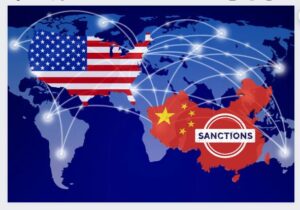Cutting Legal Corners in Emerging Markets
Introduction
It can be tempting to take shortcuts to expedite processes or reduce costs in an emerging market country. But these shortcuts often lead to legal and reputational risks that can have severe consequences for your business.
Despite assurances (usually given to you by your local employee/fixer/partner) that your shortcut will work due to their personal connections or local customs, these shortcuts often create more harm than good, by leading to delays, fines, expulsion from markets, and sometimes even imprisonment.
Real-Life Examples
1. Political Instability
The Shifting Sands of Power. Our law firm once employed a paralegal whose father was a powerful Russian government official. For years, our clients (100% legally) would get expedited Russian government approvals. However, when our paralegal’s father was unceremoniously axed (literally!), a number of our clients faced disruptions deliberately inflicted upon them by government officials who did not like our paralegal’s father. This example highlights the volatility that can stem from relying on political officials.
2. Corruption and Legal Entanglements
A Deal Gone Sour. A client secured a lucrative contract with an Asian nation’s military because of his college friendship with a prominent government official’s son. But before our client could make a penny off the deal (but after it had spent millions on the deal) the deal collapsed following the son’s arrest on corruption charges. The government assumed our client had snared the deal via corruption and this example further evidences the risks that come from relying on personal connections and shortcuts. My client actually never paid the son anything; the son had chosen my client based on a college friendship.
The Cartels That Never Leave. In another Latin American country, I have heard on multiple occasions that Chinese companies are paying cartels to expedite and streamline the building of their factories without realizing that the cartels get their payback by requiring the Chinese company hire employees chosen by the cartels and use cartel companies for pretty much everything, all at inflated prices.
3. Unforeseen Challenges and Regulatory Scrutiny:
Navigating Ownership and Compliance. A large and successful Chinese company came to my law firm because it wanted to go public but could not find the company’s sole owner in the United States after years of searching for him.
When this Chinese company started, the Chinese government was giving big subsidies, discounts, and other benefits to foreign companies. So, this Chinese company began by engaging in what was then known as “round-tripping”, which basically meant that it had someone in a foreign country set up a foreign company that would be eligible for foreign company benefits.
But fifteen years later, when it was time for the company to go public, they needed the approval of the company’s owner to do so, and so they retained us to find the owner and offer him a payout from the IPO in return for him transferring most of his ownership “back” to its rightful owners. As far as I know, nobody found the owner and the company never went public.
Zoning Restrictions and Legal Consequences: We represented a company with a factory on hospital-zoned land that wanted to sell its factory, but it could not do so because that would reveal that it operated illegally and it would get shut down. We also had another company come to us under threat of a shutdown for having gone years with hundreds of its employees being “off the grid.” To avoid the shutdown, our client ended up having to pay all unpaid employer and employee taxes, plus large (though reduced) penalties, plus interest.
4. Long-Term Implications of Irregular Approvals:
The Long Arm of Scrutiny. On multiple occasions we have had companies come to us after someone higher up in a government’s bureaucratic chain of command discovers the irregularity of an approval, subsidy, or tax benefit, and seeks to pull the plug on the foreign company operation.
Note that in many countries, a local government official will allow a foreign company to do something illegal because that benefits the local government official. This is not something that you accept because the local government official calling something legal that is illegal, does not make it legal, and in many countries, the national government conducts audits on such things and there can be hell to pay if your illegal situation is discovered.
Building Trust in Emerging Markets
Operating ethically is not just the right thing to do, it is also smart business. For example, a number of companies I advised have considerably higher employment and environmental standards than required by the countries in which they are located. These commitments help them attract a skilled and loyal workforce and garner positive attention from local media and government agencies. And on more than one occasion, I have seen these sorts of things save these clients money when the countries in which they are located toughen their employment or environmental standards.
Building Trust, the Right Way
Navigating a new market successfully requires building trust and fostering long-term relationships. This is rarely achieved with shortcuts or backroom deals. It requires a commitment to understanding and complying with national and local laws and regulations, no matter how cumbersome. Though building rapport with local partners and officials is valuable, it should always be done within the legal framework.

























